This article was medically reviewed by Luba Lee, FNP-BC, MS. Luba Lee, FNP-BC is a Board-Certified Family Nurse Practitioner (FNP) and educator in Tennessee with over a decade of clinical experience. Luba has certifications in Pediatric Advanced Life Support (PALS), Emergency Medicine, Advanced Cardiac Life Support (ACLS), Team Building, and Critical Care Nursing. She received her Master of Science in Nursing (MSN) from the University of Tennessee in 2006.
There are 9 references cited in this article, which can be found at the bottom of the page.
This article has been viewed 24,399 times.
Some people experience dizziness as feeling lightheaded or faint, getting the spins, losing balance, or having tunnel vision. Dizziness occurs for many reasons. Usually, it’s nothing to worry about. Sometimes, however, getting dizzy can be a sign that something more serious is going on.[1] If you get occasional dizziness without any other symptoms, don’t worry. Learn to recognize signs that you should discuss your dizziness with your doctor, or seek medical help right away.
Steps
Recognizing When You’re Having a Health Emergency
-
1Call emergency services if you’re dizzy and have chest pain. Chest pain by itself should be a red flag that something may be wrong with your heart, but take it even more seriously when it occurs with dizziness. Chest pain, shortness of breath, and dizziness or lightheadedness are some of the most common symptoms of a heart attack – caused when your heart isn’t getting enough blood to your brain. If this occurs, call for help immediately.[2]
- You might also experience an irregular heart rate, which may or may not cause chest pain. Get help if you’re dizzy and your heart is beating out of sync.
-
2Get emergency help if dizziness is accompanied by weakness or slurred speech. It’s normal to feel a little off-balance or fatigued when you’re dizzy, but if you experience a quick onset of weakness – especially on only one side of your body – this could signal that you’re having a stroke. Pay attention to whether your speech is more difficult or if your face is drooping on one side. Call for help as quickly as possible if you experience any of these symptoms.[3]
- Other symptoms of a stroke include your face, arms, or legs feeling numb and difficulty walking.
Advertisement -
3Notice if your dizziness occurs with a severe headache. Even if you get minor headaches regularly, pay attention if you feel dizziness and have a new headache, a severely painful headache, or a headache that differs from what you usually experience. If this occurs, have someone drive you to the emergency department or call for emergency services.[4]
-
4Call for emergency help if you pass out. Take a trip to the emergency department if you lose consciousness, or if you lose your immediate memory.[5] Sometimes people pass out because they’re dehydrated or anxious, but it can also indicate a serious problem that warrants immediate attention.
-
5Seek immediate care if you hit your head. If you become so dizzy that you fall – even if you do not lose consciousness – go to the hospital if you hit your head. Head injuries can be very serious, and symptoms of damage may not occur until later. You need to be tested for a concussion and, possibly, for bleeding inside or around your skull.
-
6Don’t ignore a high fever or stiff neck. Meningitis can be a serious and potentially deadly cause of dizziness. It often occurs with a high fever of 102°F (39°C) and up and/or a stiff neck.[6] Nausea, vomiting, confusion, a skin rash, or seizures may also occur. Get help right away to begin treating the infection.[7]
-
7Go to the hospital if you are continuously vomiting. Vomiting and dizziness may go hand-in-hand.[8] These may be symptoms of vertigo, Meniere’s disease, meningitis, or other illnesses. Persistent vomiting can make you dehydrated quickly – which is both dangerous, and will exacerbate your dizziness. Seek medical care if you’re vomiting regularly for longer than a day.
Discussing Your Dizziness with Your Doctor
-
1Get help if your dizziness keeps coming back. It’s normal for a person to sometimes feel dizzy on a hot day or if they stand up too quickly, but if your dizziness is recurring it means something is going on with your body that should get checked. You may be dehydrated, have low blood pressure, low blood sugar, or be experiencing another easily-treatable cause of dizziness. You may also be experiencing an early symptom of something more serious. Don’t ignore recurring dizziness.[9]
- Get checked out if your dizziness doesn’t go away after you have water and sit down for a while. “Normal” dizziness should be short-lived and resolve on its own.
-
2Get your heart checked if you often feel dizzy when you stand up. Some people just have low blood pressure naturally, and the drop in blood pressure going from sitting to standing can cause momentary dizziness. Dehydration can cause this, too, so notice if drinking extra water helps. Sometimes, however, low blood pressure occurs because your heart isn’t pumping blood to your body effectively – due to an arrhythmic heartbeat, a weak heart muscle, or diseased blood vessels. Have a physical exam and possibly other tests to rule out problems that could cause a heart attack or stroke.[10]
- If you consistently have low blood pressure (under 100 on top and/or 60 on the bottom) and always have, don’t worry – some people are just made that way.
-
3See a neurologist if you feel like the room is spinning. Unlike many other causes of dizziness that make you feel like you are spinning, vertigo causes the sensation that the room around you is moving, tilting, or spinning. Dizziness from vertigo may be accompanied by nausea, vomiting, or trouble standing and walking.[11] Vertigo can be caused by serious or non-threatening issues, usually due to dysfunction in your inner ear. See a neurologist to rule out a serious cause and to get treatment quickly. Your regular doctor can refer you to a neurologist.
-
4See a doctor if you experience a change in your hearing or vision. Some viruses that affect your inner ear can cause abrupt dizziness. Vestibular labyrinthitis and vestibular neuritis usually resolve on their own, but you should be examined and diagnosed by a doctor – they may want to prescribe anti-viral medications or provide you with other medicines to relieve your symptoms.[12] Vision changes and weakness could also indicate a neurological disorder like Parkinson’s or multiple sclerosis, which should be treated early.[13]
-
5Talk to your doctor if you experience dizziness over the age of 65. Older people are more at risk for dizziness, and are more likely to experience dizziness as a symptom of a serious disorder like a stroke, neurological disease, or heart condition. Be wary of dizziness if you're over 65, especially if it is recurring or associated with imbalance.[14]
- Dizziness in the elderly increases the risk of falls, and should be treated to prevent complications of falling.
-
6Be aware that there are many potential causes of dizziness. Your doctor may need to take a detailed history and do a physical exam to evaluate the cause of dizziness. Some of the types of dizziness and their potential causes may include:
- Sudden onset of dizziness can be caused by low blood sugar and metabolic disturbances such as hypoxia, hypocarbia, and hypercarbia.
- Chronic dizziness might be related to Meniere’s disease, cerebral insufficiency, cardiovascular or neurologic illness such as multiple sclerosis, blood loss and severe anemia.
- Lightheadedness may be related to anxiety, depression and other psychiatric problems. Panic attacks frequently are accompanied by feelings of lightheadedness or dizziness. Medications for these conditions, such as tranquilizers and antidepressants, can also contribute to dizziness.
Warnings
- Don’t drink alcohol or use tobacco if you’re dizzy – these can make you feel worse.⧼thumbs_response⧽
References
- ↑ http://cp.neurology.org/content/1/1/24.short
- ↑ https://my.clevelandclinic.org/health/symptoms/6422-dizziness
- ↑ https://my.clevelandclinic.org/health/symptoms/6422-dizziness
- ↑ https://www.nhs.uk/conditions/dizziness/
- ↑ https://www.nhs.uk/conditions/dizziness/
- ↑ https://www.cdc.gov/meningitis/bacterial.html
- ↑ https://www.nhs.uk/conditions/dizziness/
- ↑ https://my.clevelandclinic.org/health/symptoms/6422-dizziness
- ↑ https://my.clevelandclinic.org/health/symptoms/6422-dizziness
- ↑ https://my.clevelandclinic.org/health/symptoms/6422-dizziness
- ↑ https://vestibular.org/news/06-21-2013/neurologist-how-know-when-dizziness-serious
- ↑ http://american-hearing.org/disorders/vestibular-neuritis-and-labyrinthitis/#treated
- ↑ https://vestibular.org/news/06-21-2013/neurologist-how-know-when-dizziness-serious
- ↑ https://www.ncbi.nlm.nih.gov/pmc/articles/PMC3541873/
- ↑ https://www.health.harvard.edu/heart-health/dizzy-spells-when-you-stand-up-when-should-you-worry
- ↑ https://www.health.harvard.edu/diseases-and-conditions/lightheaded-top-5-reasons-you-might-feel-woozy
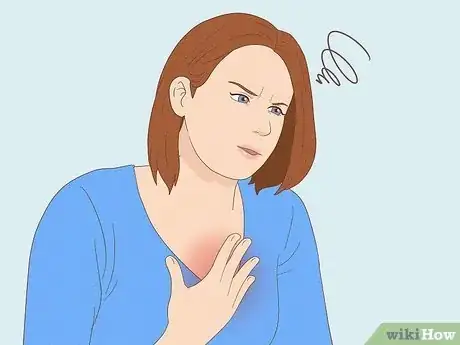
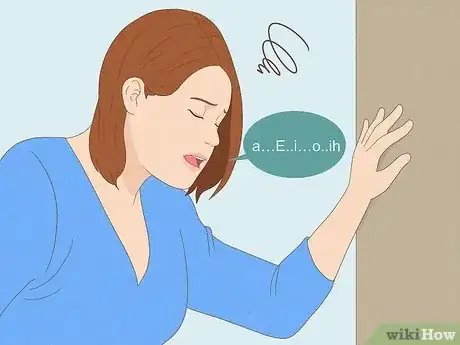

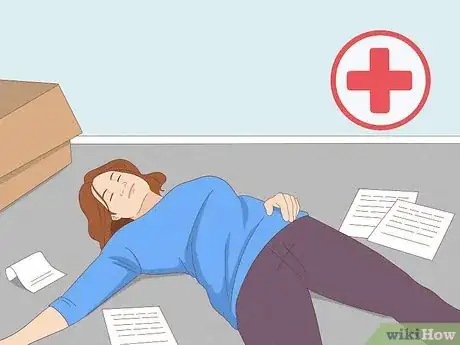

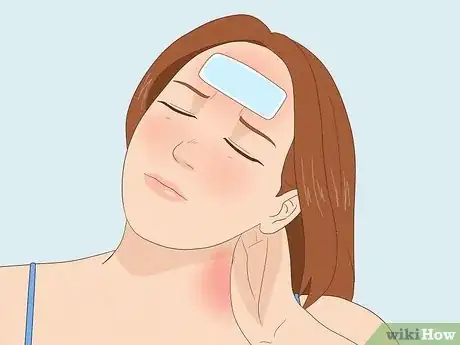
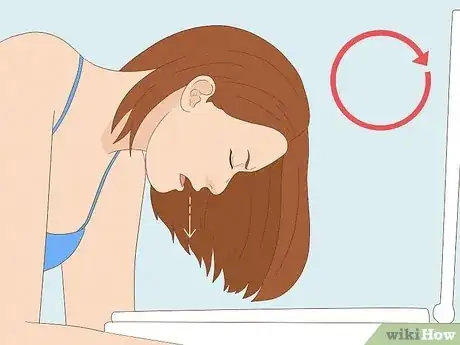
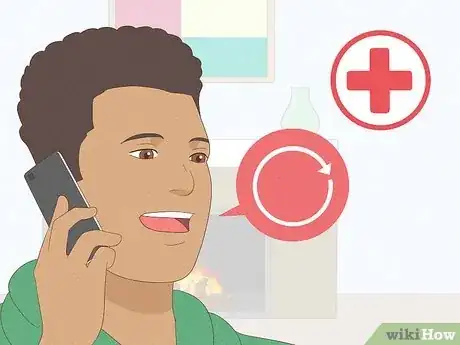


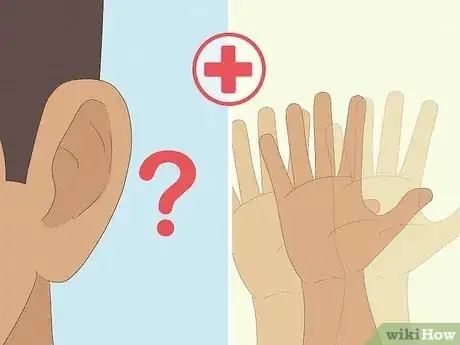



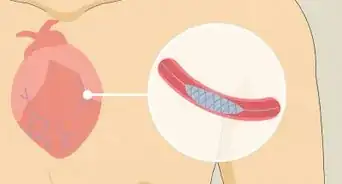
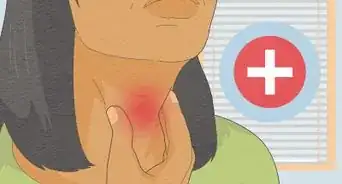
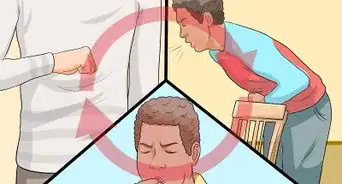
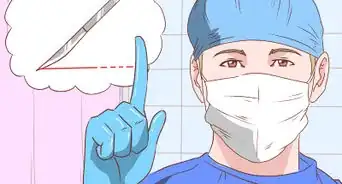
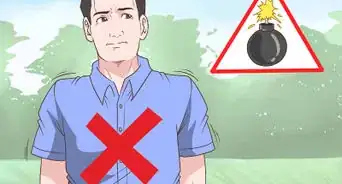





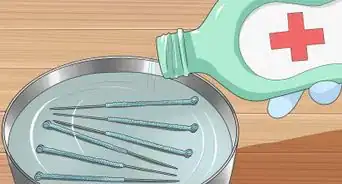









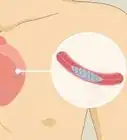




































Medical Disclaimer
The content of this article is not intended to be a substitute for professional medical advice, examination, diagnosis, or treatment. You should always contact your doctor or other qualified healthcare professional before starting, changing, or stopping any kind of health treatment.
Read More...